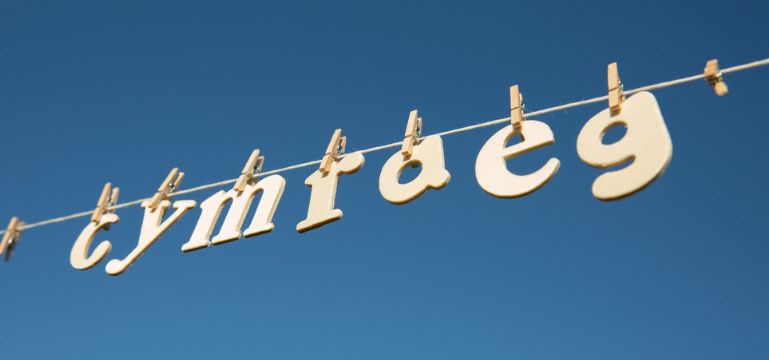Motivating pupils to speak Welsh

Quick links:
Information about the school
Ysgol Brynaman is situated in a rural area at the foot of the Black Mountain. The school serves the village and the nearby villages of Rhosaman, Ystradowen and Cefnbrynbrain. Around 20% of pupils also live in the county of Neath Port Talbot. Fifteen per cent (15%) of pupils come from homes where Welsh is spoken fluently. This number has decreased slowly over the years.
Learners come from a variety of social backgrounds, with a minority coming from disadvantaged households. Twenty-five per cent (25%) of children are eligible for free school meals, which is a number that has increased significantly since the lockdown periods. Around 5% of children are on the ALN register.
Context and background to the effective or innovative practice
The aim of the staff and part of the school’s vision is to ensure that all pupils are completely bilingual by the time they leave Ysgol Brynaman. Over the past three years, very few children have any Welsh language skills on entry to the nursery class. As a result of the pandemic, a minority of children throughout the school also lost confidence in speaking Welsh. Therefore, the school had to re-visit its curriculum, planning and pedagogy. The aim was to ensure that there were plenty of purposeful opportunities for pupils to hear rich language through good modelling of the Welsh language, which would then motivate them to be able to speak Welsh fluently.
Description of the nature of the strategy or activity
Leaders have high and firm expectations to promote the Welsh language, which permeate all of the school’s staff. Staff model the language correctly consistently. They use a variety of methods skilfully and this helps pupils to develop their fluency. This is done by feeding vocabulary purposefully and by having high expectations when encouraging pupils to respond correctly through specific speaking and listening sessions. Pupils are encouraged to speak Welsh by the Criw Cymraeg and Welsh songs are played on the playground during every play time to raise the profile of the language during leisure time.
Staff in the nursery and reception classes provide beneficial opportunities for pupils to sing rhymes, and practice language patterns in short and snappy sessions. These are reinforced in practical group activities in the imaginary world area. For example, in the nursery class, they provide sensory resources to accompany the story of the Three Little Pigs. As pupils experiment with twigs and straw, blowing and knocking, staff play alongside, constantly feeding vocabulary and encouraging them to respond appropriately. Another example is the effective use of practical numeracy activities in reception as pupils add straw to the bald faces, with staff feeding them vocabulary purposefully. Across the school, there are reading sessions at the end of the day. For example, in Year 2, pupils vote for the story they want to hear, with the teacher again using vocabulary such as title, blurb, author and illustrator to reinforce literary vocabulary for pupils before reading the story. Contemporary and local heroes are used to promote pupils’ interest. For example, in Year 6, a Welsh video clip is used of the Welsh rugby captain and former pupil of the school to set a numeracy challenge for the pupils.
What impact has this work had on provision and learners’ standards?
As a result of the above methods and activities, a Welsh ethos has been developed within the school, with most pupils very proud to attend a Welsh-medium school and using the language with pride. Children in the nursery and reception classes develop Welsh listening and speaking skills from an early age. As pupils move through the school, they become increasingly confident learners. They offer answers to staff in Welsh and are keen to talk to visitors. The use of local contemporary heroes has developed an attitude of belonging to their community, increasing pride in speaking Welsh in the classroom, but also on the playground. By the end of their time at Ysgol Brynaman, most of the oldest pupils are proud to be fully bilingual pupils.
How have you shared your good practice?
Good practice was shared with all staff, in the first instance, to ensure consistency in the development of the language throughout the school. This was also shared with our stakeholders, such as in governors’ meetings and open evening for parents, where parents were also given ideas on how to encourage and help their children to speak Welsh outside school.
We have also shared our good practice with the cluster schools when they have visited the school.